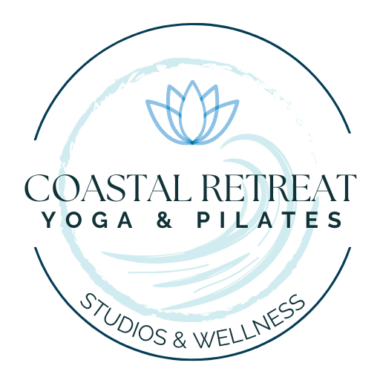Two Steps to Nip Holiday Stress in the Bud

HAPPY HOLIDAYS! WELCOME TO THE FIRST COASTAL RETREAT CLINICIAN’S CORNER BLOG POST. LET’S START BY FOCUSING ON THE EFFECTS OF CORTISOL AND OTHER STRESS HORMONES, ESPECIALLY DURING THE HOLIDAYS!
Initially, I had another topic in mind to write about… but then my husband and I decided to take a family trip to New York City this weekend, to enjoy the holiday sights and sounds. It provided the most perfect example of overstressed holiday insanity. Fortunately, I am still married, my husband is still alive, and while our teenager hasn’t said much, I get the impression that she doesn’t hate us as much as usual. But let me get to the rest of the story. It is important to know that our two girls are almost 14 years old and almost 4 years old. I am no longer allowed to refer to them as 13 and 3. I am frequently admonished of the “almost” part, as their birthdays are both in January. So my almost 14 year old asked to see Beetlejuice on Broadway for Christmas. The show was amazing, so I hear. I was back at the hotel having a pillow fight and making paper airplanes with the little one. She had so much fun, she wanted to stay in the hotel “for-evah!”. The food was amazing, with every meal at every restaurant tasting better than the one before. Oh, how my taste buds miss NY Italian food… that will be what pulls me back.
Then there’s the stress part. It rained almost the entire trip. A cold winter rain that soaks into your bones. Wheeling a stroller around in the rain in NYC is not fun. Every indoor space was super crowded. Having 4 of us sleeping in one tiny hotel room… didn’t work well for the little one. So none of us got much sleep. And then we had the pleasure of taking the train back to NJ to get the car… I have never seen so many people crammed into one small space. The guy next to me (like touching me from shoulder to thigh kind of next to me) had a fragrant air of stale beer, cigarette smoke, and body odor. I think he actually sweat through my jacket. I almost missed my stop, trying to force my way through the hot, crowded train with a kid in one arm and a bag in the other. Our trip ended with my husband having a minor meltdown when we not only couldn’t find the car, then couldn’t find the keys, then couldn’t figure out how to get out of the parking lot… GET ME OUT OF HERE!!!
My heart rate and blood pressure were elevated, my breathing shallower, and my patience dropped to near zero. All thanks to my circulating stress hormones: cortisol, epinephrine, and norepinephrine. My husband’s stress was so high in the parking lot (after I almost didn’t make it off the train), that he literally could not think straight. All thanks to cortisol, epinephrine, and norepinephrine.
Acute and chronic stress both cause releases of those stress hormones. Over time, in chronic stress, that can spell trouble. High levels of cortisol pull blood away from the gut towards the muscles, so you are better able to fight or flee. A needed adaptation for acute stress… but over time, this can lead to critical vitamin and mineral deficiencies. Lower gastric acid means less fat breakdown, which means less absorption of fat-soluble vitamins like A, D, E, and K. Stomach acid is critical for protein breakdown as well. Less digestion of protein means fewer amino acids available for needed tissue repair and less absorption of minerals that are critical for immune system health, such as magnesium, iron, and zinc. Poor intestinal motility can lead to diarrhea or constipation, further impacting absorption. To make matters worse, long term stress uses up critical nutrients such as zinc, magnesium, and most of the B vitamins, leading to worsening deficiencies over time. These nutrients are critical for immune system function, brain health, and energy production.
Elevated cortisol suppresses the thyroid, leading to a lower metabolism and worsening fatigue. Insulin levels are affected, and blood sugar becomes more difficult to control. So we crave more sweets and carbs, and we don’t burn calories as efficiently. What about the brain? Elevated cortisol decreases the activity in the limbic system, which is responsible for regulating emotions, motivation, and memory… and helps with decision making.
Too much stress over time leaves us tired, bloated, malnourished, overwhelmed, and forgetful. It causes weight gain and makes us more susceptible to winter colds and flu.
Yup, sounds like a typical holiday season.
So what can you do to limit the damage?
Focus on nutrition.
- If you’ve slacked off on your multivitamin, it might be time to add that back in to your daily routine.
- Consider a B complex every other day.
- Consider a smoothie for breakfast. Make it quick and easy by using a nut milk (if not allergic), whey or pea protein powder, a fresh banana, and then frozen berries, frozen greens, and frozen avocado. (You can substitute nut butter for avocado.) Blending to a liquid makes the nutrients more accessible and absorbable. Don’t skip the avocado/nut butter. You need fat in order to absorb fat-soluble vitamins and to keep you full until lunch.
- Eat the rainbow: choose fruits and vegetables that are darkly pigmented. Red, orange, yellow, green, and purple/black. Each type of fruit or vegetable has a unique combination of nutrients. So try to get variety in your week. Remember, stress has a profound impact on the gut. You need as many nutrients as you can get.
- Avoid sugar unless in a social situation. You might not want to offend Aunt Sue by snubbing her holiday cookies… but outside of that, try to keep sugar intake down. Stress causes sugar dysregulation.
Practice stress reduction
- Try square breaths. Breathe in for 4, hold for 4, breathe out for 4, empty for 4. All you need is 60-90 seconds to activate the vagus nerve and trigger a relaxation response. Doing this 4 times a day for 60-90 seconds each time can impact circulating cortisol levels.
- Try guided relaxation before bed. There are plenty of free podcasts and YouTube videos out there. Solid sleep is critical for reducing cortisol levels. If insomnia is a real problem for you, it’s time to get seen.
- Try yoga or Pilates.
And remember… January will be here before you know it. And then you can throw away the rest of Aunt Sue’s cookies without feeling guilty.
And, if you need more help with fatigue, autoimmune issues, hypothyroidism, or IBS/digestive issues, schedule a free 15-30 minute call with me HERE.Let’s see what we can do.
Stefanie DeFiglia, CRNP is a Family Nurse Practitioner with additional training and certification in functional medicine. She has a particular interest in fatigue and burnout, but she also loves autoimmunity, gut issues, and thyroid health. She sees patients in person at Coastal Retreat and has a telemedicine practice.
